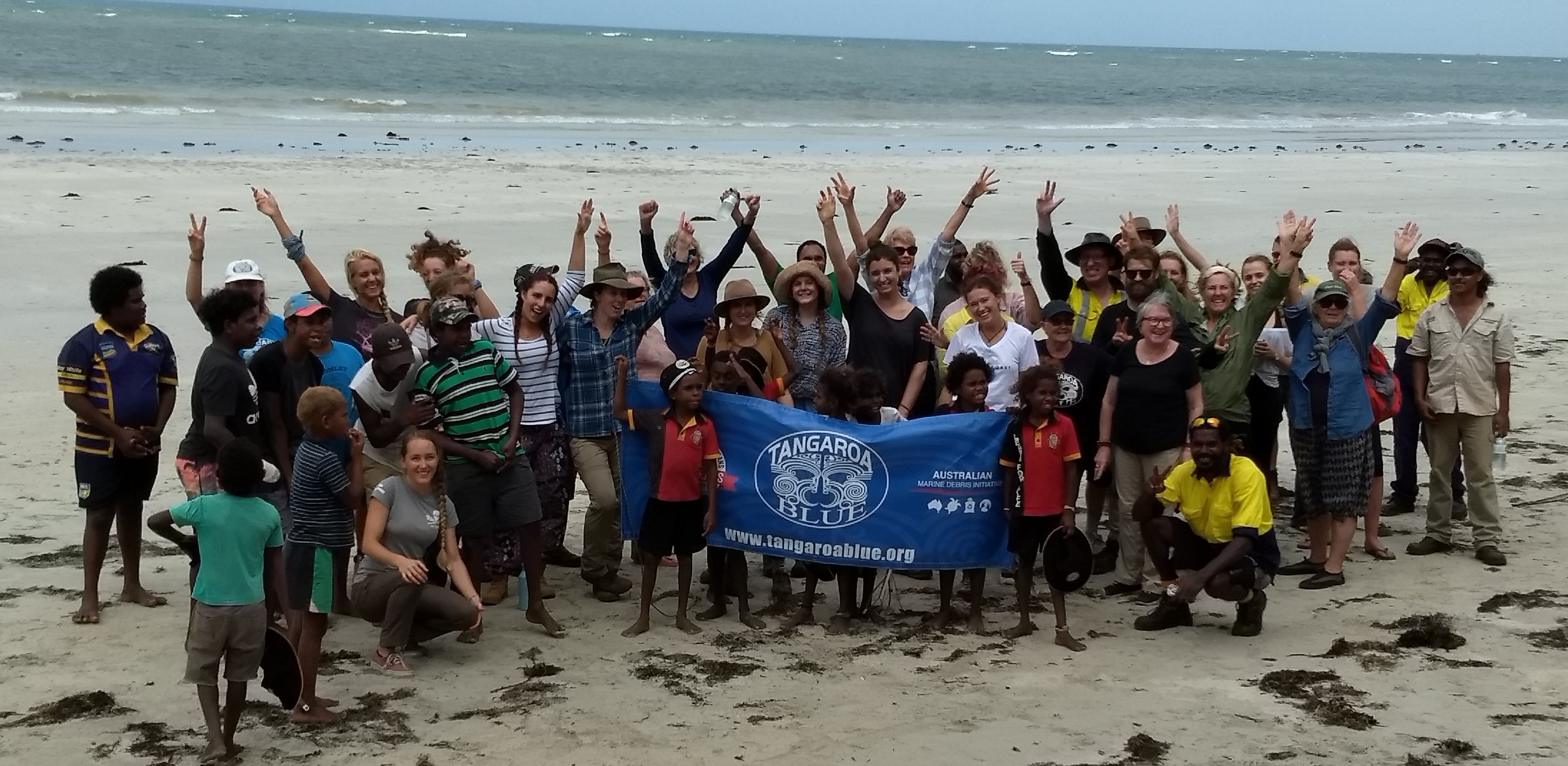Cape York and Neighboring Island Countries Marine Debris partnerships
Tangaroa Blue Foundation
(
Non-governmental organization (NGO)
)
#OceanAction41604
Description
This commitment relates to our ongoing program of working with indigenous communities in Cape York in far north Queensland and the Torres Strait Islands to help those communities deal with the very significant volumes of marine debris being deposited on their remote coasts. Currently this involves major clean-up efforts at strategic locations, data collection and source reduction activities.
Data collected to date shows the eastern side of Cape York receives 96% of its debris from offshore with information collected from items indicating the main sources to be shipping waste, debris carried from Melanesia and nearer Polynesian locations and fishing gear. Western Cape York receives 88% of its debris from offshore with labels showing a South East Asian origin, together with shipping waste and fishing gear. The Torres Strait region receives 54% of its debris from offshore but sources are yet to be clearly determined due to data limitations.
This commitment is to expand the work in Cape York and Torres Strait by creating partnerships in neighboring island nations and countries. The processes leading to release of plastic waste into land environments and the channeling of that waste into the ocean follows similar patterns in all countries. These partnerships would aim to encourage and assist where possible, local communities to carry out clean-ups and collect data as an important first step in local engagement in marine debris. The second step being to encourage the communities to begin developing simple source reduction plans to prevent local inputs of marine debris into their local rivers and seas.
Partnerships will provide benefits to local communities by providing access to TBF web based resources which support the two steps of submitting clean-up data into the AMDI Database and sharing information and logistical methods used to remove debris and what to do with recovered debris. The process, enables the collection of marine debris information and data across the region which can become a resource which governments and higher level partnerships in the region can utilize in addressing marine debris sources which transcend any single island country.
SDGS & Targets
Goal 14
Conserve and sustainably use the oceans, seas and marine resources for sustainable development
14.1
By 2025, prevent and significantly reduce marine pollution of all kinds, in particular from land-based activities, including marine debris and nutrient pollution
14.1.1
(a) Index of coastal eutrophication; and (b) plastic debris density
14.2
By 2020, sustainably manage and protect marine and coastal ecosystems to avoid significant adverse impacts, including by strengthening their resilience, and take action for their restoration in order to achieve healthy and productive oceans
14.2.1
Number of countries using ecosystem-based approaches to managing marine areas
14.3
Minimize and address the impacts of ocean acidification, including through enhanced scientific cooperation at all levels
14.3.1
14.4
By 2020, effectively regulate harvesting and end overfishing, illegal, unreported and unregulated fishing and destructive fishing practices and implement science-based management plans, in order to restore fish stocks in the shortest time feasible, at least to levels that can produce maximum sustainable yield as determined by their biological characteristics
14.4.1
14.5
By 2020, conserve at least 10 per cent of coastal and marine areas, consistent with national and international law and based on the best available scientific information
14.5.1
14.6
By 2020, prohibit certain forms of fisheries subsidies which contribute to overcapacity and overfishing, eliminate subsidies that contribute to illegal, unreported and unregulated fishing and refrain from introducing new such subsidies, recognizing that appropriate and effective special and differential treatment for developing and least developed countries should be an integral part of the World Trade Organization fisheries subsidies negotiation
14.6.1
Degree of implementation of international instruments aiming to combat illegal, unreported and unregulated fishing
14.7
By 2030, increase the economic benefits to Small Island developing States and least developed countries from the sustainable use of marine resources, including through sustainable management of fisheries, aquaculture and tourism
14.7.1
Sustainable fisheries as a proportion of GDP in small island developing States, least developed countries and all countries
14.a
Increase scientific knowledge, develop research capacity and transfer marine technology, taking into account the Intergovernmental Oceanographic Commission Criteria and Guidelines on the Transfer of Marine Technology, in order to improve ocean health and to enhance the contribution of marine biodiversity to the development of developing countries, in particular small island developing States and least developed countries
14.a.1
14.b
Provide access for small-scale artisanal fishers to marine resources and markets
14.b.1
Degree of application of a legal/regulatory/policy/institutional framework which recognizes and protects access rights for small‐scale fisheries
14.c
Enhance the conservation and sustainable use of oceans and their resources by implementing international law as reflected in United Nations Convention on the Law of the Sea, which provides the legal framework for the conservation and sustainable use of oceans and their resources, as recalled in paragraph 158 of "The future we want"
14.c.1
Number of countries making progress in ratifying, accepting and implementing through legal, policy and institutional frameworks, ocean-related instruments that implement international law, as reflected in the United Nations Convention on the Law of the Sea, for the conservation and sustainable use of the oceans and their resources
SDG 14 targets covered
| Name | Description |
|---|---|
| 14.1 | By 2025, prevent and significantly reduce marine pollution of all kinds, in particular from land-based activities, including marine debris and nutrient pollution |
Deliverables & Timeline
Resources mobilized
Partnership Progress

Feedback
Action Network

Timeline
Entity
SDGs
Geographical coverage
Ocean Basins
Communities of Ocean Action
More information
Countries
Contact Information
Heidi Tait, CEO

